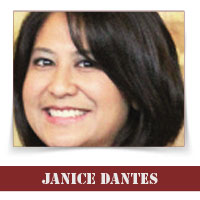
By: Janice Dantes
Whether a death is unexpected or occurs after illness, picking up the pieces can be difficult. Not only are you grieving, but you have to deal with thing they have left behind. There can be legal ramifications if not dealt with properly. Probate is a scary term that most non-lawyers are unfamiliar with. Below are my tips for dealing with the assets and debts of a loved one after they pass away:
1. Obtain the death certificate. When someone passes away, please obtain the death certificate. Look closely to make sure the information is accurate and note the cause of death. If the cause of death is not natural causes, be sure that you are familiar with the cause of death. If there are questions about the cause of death especially if it occurred after an accident or medical procedure, please consult with an attorney to determine if there is a cause of action.
2. Look for a Will, Trust, or other estate planning documents left behind. Please be sure you locate a Will, Trust, or other estate planning documents. This provides for how the decedent would like their assets distributed. This will allow you to notify the heirs (nearest of kin of the decedent) and legatees (people named in the will) and inform them that they are named in some pertinent documents. There are many requirements for a will or trust to be valid. A writing on a napkin is not a valid will. Consult with an attorney to determine if the Will, Trust, or other estate planning documents are valid.
3. If there is no will, determine who the closest living relatives are. It is important to determine who the decedent’s heirs are if they pass away without a will, trust, or other estate planning documents. The closest relatives are living spouses and children. If the person who passed away was divorced or widowed and did not have children, you will have to see if you can locate parents, siblings, nieces/nephews, etc. This will help determine who would receive distributions and who can represent the estate.
4. Determine how many assets/debts the decedent left behind. For estates larger than $100,000, there typically has to be a probate opened. However there are some exceptions if the decedent did some estate planning including a bond in lieu of probate. If the estate is less than $100,000, you may not need to open an estate. You might just need a small estate affidavit. Be sure to consult an attorney before you open an estate or prepare a small estate affidavit. If you have questions about orders of protection, please call (312) 546-5077 or janice@ pinaylaw.com. Thank you for reading. Until we meet again, love one another.
 VIA Times – January 2022 Issue Vital News, Vibrant VIews for Asian Americans in Chicago & Midwest
VIA Times – January 2022 Issue Vital News, Vibrant VIews for Asian Americans in Chicago & Midwest

